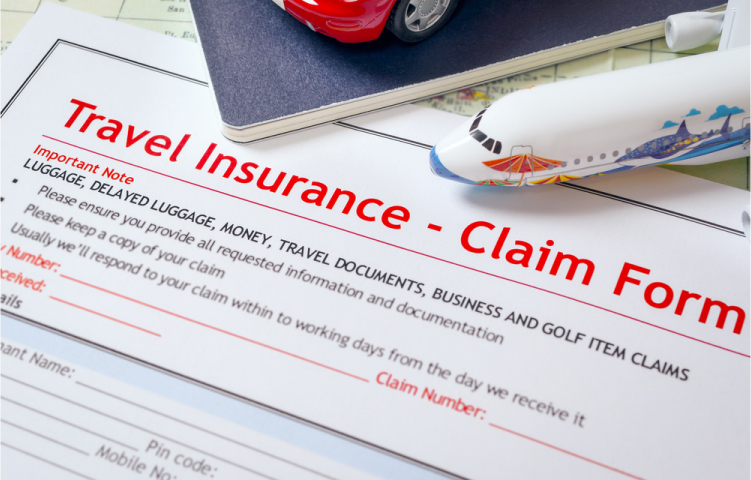Top 5 Common Travel Insurance Claims and How to Avoid Them

Travelling is often seen as an exciting adventure, but it can quickly become overwhelming if things go wrong. From medical emergencies to lost luggage, unexpected events can damage your trip.
Fortunately, travel and medical insurance offers coverage for these situations, ensuring peace of mind while you’re on the road.
However, many common claims made under Schengen travel insurance can be avoided with foresight and preparation.
Check out this detailed guest post about the top five claims travellers commonly make and the simple steps to prevent them from happening.
5 Common Travel Insurance Claims and Ways to Avoid Them
1. Medical Emergencies
One of the most frequent travel insurance claims is related to medical emergencies. Whether it’s a sudden illness, an accidental injury, or the need for emergency medical evacuation, healthcare abroad can be costly and complicated.
How to Avoid It?
Before you travel, take some essential precautions to reduce the risk of medical emergencies. Ensure you have Schengen travel insurance if you’re heading to Europe, as it provides medical coverage often required for visa approval.
Be mindful of potential health risks at your destination—vaccinations or preventive medication can reduce the risk of falling ill. Bring a small first aid kit and essential medicines for minor health issues.
If you plan on engaging in adventurous activities such as skiing or scuba diving, ensure your travel and medical insurance covers those specific activities to avoid denied claims in case of accidents.
Also, take steps to maintain your health while travelling. Staying hydrated, eating correctly, and avoiding extreme activities that could lead to injuries are simple yet effective ways to avoid ending up in a foreign hospital.
2. Trip Cancellations or Delays
Trip cancellations or delays are another leading cause of insurance claims. A cancelled flight due to poor weather, personal emergencies, or political unrest can lead to unexpected expenses, from booking alternative flights to covering accommodation costs during delays.
How to Avoid It?
Start by reading the cancellation policies of your airline and accommodation providers before booking. Opt for refundable options when possible, and watch weather conditions and any political or health advisories for your destination.
It’s also wise to purchase a travel and medical insurance policy that covers trip cancellations due to covered reasons, such as natural disasters, medical emergencies, or the death of a family member.
Staying informed and organised can also reduce the likelihood of filing a claim. Keep your travel documents, flight confirmations, and insurance policy details easily accessible.
This way, if you experience a delay, you’ll have everything you need to communicate with your insurance provider quickly and accurately.
3. Lost or Stolen Luggage
Losing your luggage is a traveller’s worst nightmare. Not only can it disrupt your plans, but it can also lead to significant expenses for replacing essential items like clothing and toiletries.
Claims for lost or delayed luggage are among the most common reasons people use Schengen travel insurance.
How to Avoid It?
The good news is that lost luggage can often be avoided with some preparation. Label your bags clearly with your contact information, home address and travel destination.
Consider investing in a tracking device for your luggage, which allows you to trace its location if it gets misplaced.
Always pack essential items like medications, a change of clothes, and important documents in your carry-on bag to minimise the impact of lost luggage.
Additionally, check whether your travel and medical insurance covers lost or delayed baggage, as many policies will reimburse you for necessary purchases while your bags are missing.
4. Loss of Passport
Losing your passport in a foreign country can cause significant stress and delays, as it’s the most crucial document for your international travel.
This can result in claims under Schengen travel insurance for replacement passports and emergency travel arrangements.
How to Avoid It?
To reduce the risk of losing your passport, store it in a secure location such as a hotel safe whenever possible.
Use anti-theft travel accessories like RFID-blocking wallets or crossbody bags to protect your passport when moving.
Make copies of your passport and store them separately from the original document as hard copies or digital versions on your phone.
If you lose your passport, having Schengen travel insurance can help cover the costs of obtaining a replacement, such as travel to the nearest consulate and fees for the new passport.
5. Flight Delays
Flight delays are frustrating and can lead to further complications, such as missing a connecting flight or needing to extend your stay. Many travellers file insurance claims to cover additional expenses incurred during extended delays.
How to Avoid It?
While you can’t control the weather or mechanical issues, you can take steps to minimise the impact of a delayed flight.
When booking your flights, avoid tight connections and choose airlines with a good reputation for on-time performance.
Monitor your flight status regularly, and arrive at the airport early to give yourself extra time in case of any unexpected changes.
Conclusion
Travel and medical insurance can help cover the expenses of rebooking flights, food, and accommodation if your flight is delayed for a significant amount of time.
However, check the specific coverage rules of your policy, as most insurers will only pay out after a delay has lasted a certain number of hours.
Although travel and medical insurance is an essential safety net, careful planning and awareness can prevent many common claims.
From avoiding medical emergencies to securing your luggage, small steps can make a big difference in ensuring a smooth and stress-free trip.
By staying prepared, you’ll reduce the likelihood of needing to file a claim under your Schengen travel insurance, allowing you to focus on enjoying your travels.
*Standard T&C Apply
Insurance is the subject matter of solicitation. For more details on benefits, exclusions, limitations, terms, and conditions, please read the sales brochure/policy wording carefully before concluding a sale.
Claims are subject to terms and conditions set forth under the travel insurance policy.

